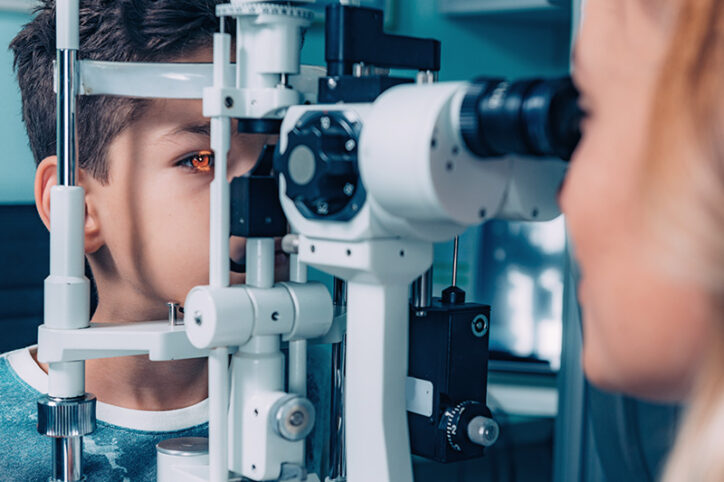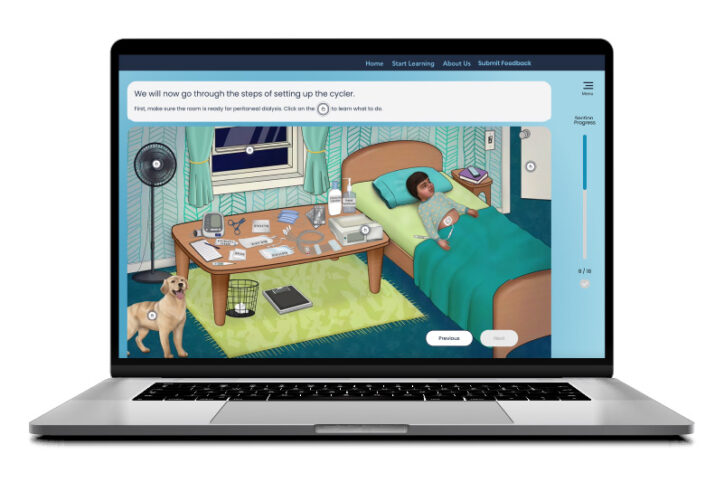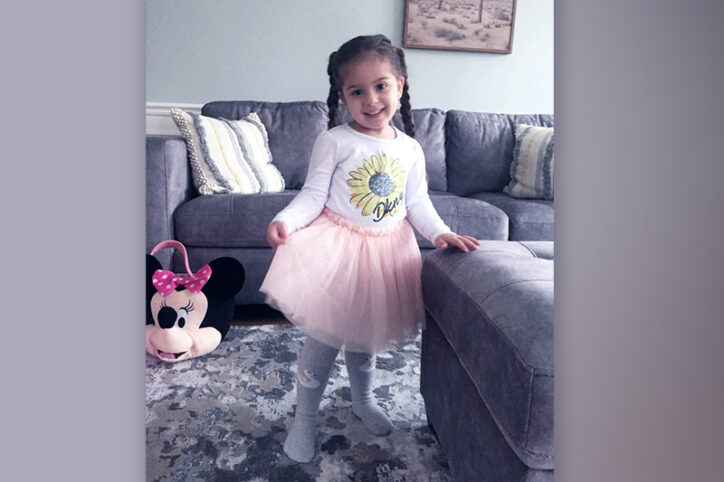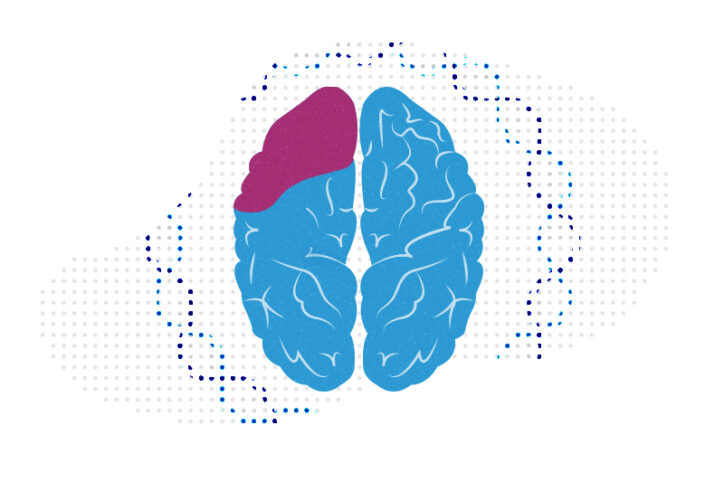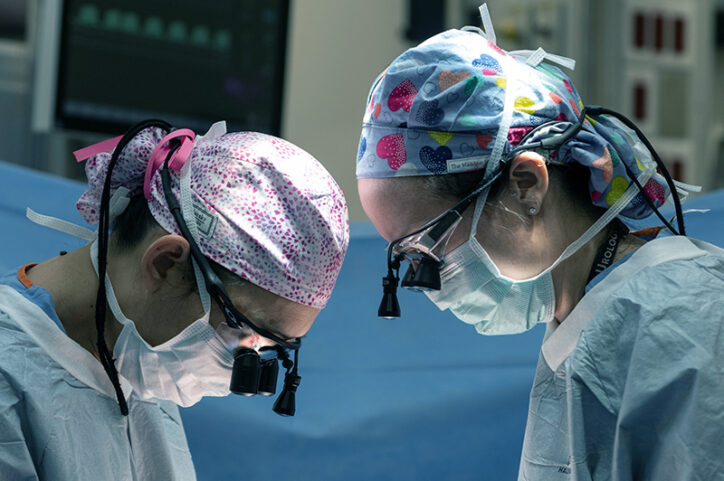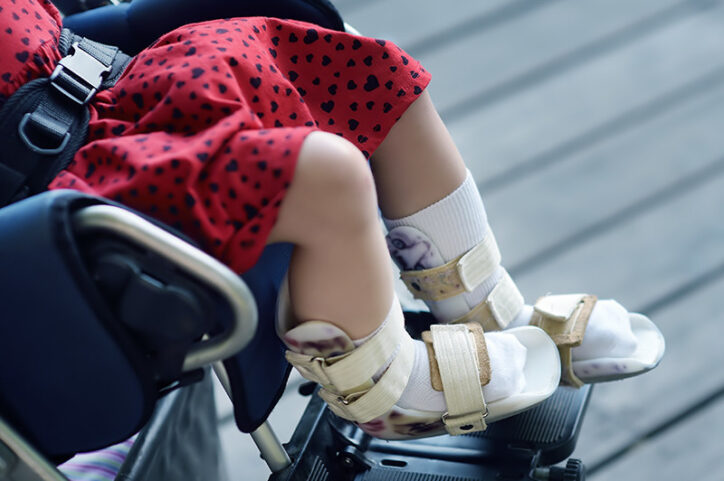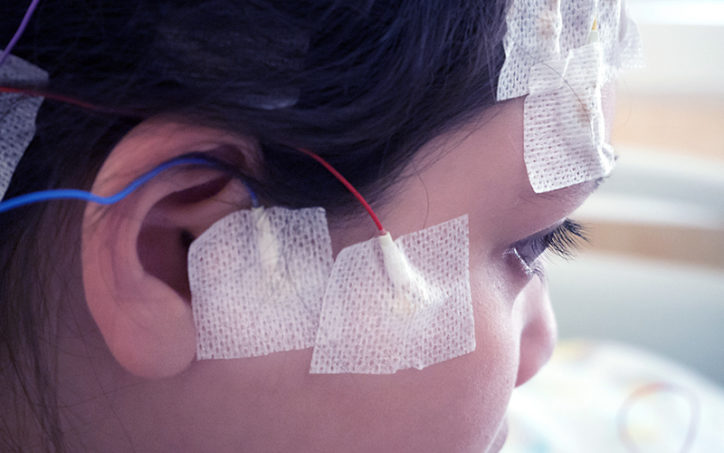Here’s how genetic vision testing can help your family
At least 600 of the roughly 20,000 genes in the human body are needed for normal eyesight. Changes in those genes can lead to many eye conditions, including glaucoma, cataracts, and inherited retinal disorders. If your child has an inherited retinal disorder, they might benefit from genetic testing. It can help determine a diagnosis and how their ... Read More about Here’s how genetic vision testing can help your family
New online peritoneal dialysis simulator gives the power of education to patients
For years, patients who need peritoneal dialysis, a form of home-based treatment for kidney disease, have had to educate themselves about the approach. “Many families have never heard of peritoneal dialysis prior to their child’s diagnosis,” shares Dr. Deborah Stein, a nephrologist in the Division of Nephrology at Boston Children’s Hospital. The idea of peritoneal ... Read More about New online peritoneal dialysis simulator gives the power of education to patients
Seeking a path forward for custom genetic treatments
In 2018, at age 7, Mila Makovec became the world’s first person to be treated with a drug made just for her. Languishing from Batten disease, a rare, fatal neurodegenerative disorder, she received an antisense oligonucleotide (ASO) drug designed to silence her genetic mutation, injected into the fluid around her spine through a lumbar puncture. ... Read More about Seeking a path forward for custom genetic treatments
Diving into summer: What to know about water safety
The sun is back, the temperatures are rising, and that means more of us will be heading towards the water to cool off. Whether your family is going to a pool, beach, lake, or pond, knowing how to keep your children safe when splashing in the water should be top of mind. We recently spoke ... Read More about Diving into summer: What to know about water safety
Making autism evaluations accessible: Boston Children’s tests virtual options
At this time the virtual autism diagnosis program is only available to internal Boston Children’s Hospital primary care patients who receive care at the Children’s Hospital Primary Care Center or at Boston Children’s at Martha Eliot. Many obstacles can delay a diagnosis of autism in children, including language barriers, waiting lists for evaluation, and access ... Read More about Making autism evaluations accessible: Boston Children’s tests virtual options
Rethinking cerebral arachnoid cysts through genomics
Cerebral arachnoid cysts are the most common mass-occupying brain lesion in humans. Some cause no noticeable symptoms and may just be incidental findings. Others are quite severe, causing hydrocephalus and potentially nerve damage; these clearly require surgery to drain the cyst fluid and relieve pressure on the brain. But a middle ground sits between these ... Read More about Rethinking cerebral arachnoid cysts through genomics
‘The teamwork is outstanding’: A look inside the Colorectal and Pelvic Malformation Center
In honor of Women’s History Month, we sat down with some of the clinicians in Boston Children’s Colorectal and Pelvic Malformation Center (CPMC), one of the only centers of its kind led and staffed primarily by women. Here’s what they had to say about their work, their patients — and their hopes for the future. ... Read More about ‘The teamwork is outstanding’: A look inside the Colorectal and Pelvic Malformation Center
Congenital hypothyroidism: New guidance for clinicians
Congenital hypothyroidism is usually caused by a baby being born with an absent or underactive thyroid gland. When not treated, it’s one of the most common preventable causes of intellectual disability. Although newborn screening can identify congenital hypothyroidism and lead to prompt treatment, an estimated 70 percent of newborns worldwide are born in regions that ... Read More about Congenital hypothyroidism: New guidance for clinicians
Research offers guidance on genetic testing for cerebral palsy
A recent meta-analysis confirms what a small study at Boston Children’s found last year: About 1 in 4 children with cerebral palsy (CP) who had DNA testing had genetic variants likely to have caused or contributed to their condition. With the new data, the researchers have expanded the traditional view of the condition and offer ... Read More about Research offers guidance on genetic testing for cerebral palsy
A path forward for genetic testing in unexplained epilepsy
The number of genes implicated in epilepsy has grown rapidly in the past decade. This raises questions about what tests to offer to people with unexplained epilepsy and whether those tests would yield actionable information. Now, practice guidelines developed by genetic counselors at Boston Children’s Hospital offer a way forward. In the first systematic evidence ... Read More about A path forward for genetic testing in unexplained epilepsy


